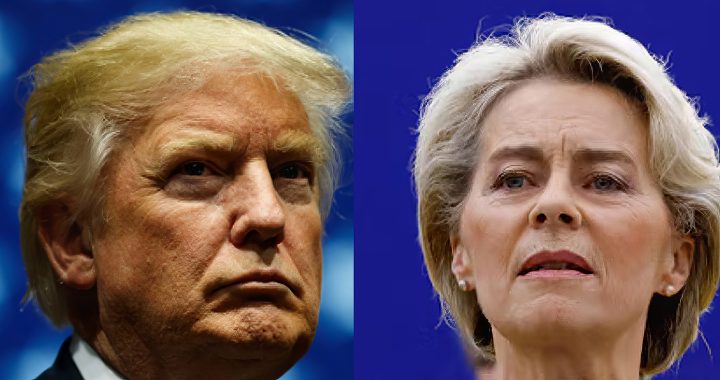Could Donald Trump make a purchase of Nokia or Ericsson part of a tariff deal with Europe?
It’s a debate that is growing momentum in Europe, but it’s divided with some saying it’s a good idea and others regarding it as utter madness.
Its genesis goes back to Trump’s first presidency when then Attorney-General William Barr suggested the US have a “controlling stake” in the European companies.
At the time, the western world was grappling with the global ambitions of Chinese tech giant Huawei, especially in the global 5G market.
America simply did not have a specialist telecommunications company of that type. It was a defence issue that the US would have to rely on other countries for this equipment in the event of war.
The Americans were also worried that Europe might give Huawei control of the continent’s critical infrastructure. Then Secretary of State Mike Pompeo implored Europe not to do so, in a long article in US publication Politico.
“Our friendships and alliances with EU states — ones ultimately built on a common love of freedom — demand that we raise our concerns when we see threats to our shared security,” Pompeo wrote.
Fast forward six years, and the future of Ericsson and Nokia are back in the frame, although the conditions, indeed the technical landscape, have changed significantly.
Huawei is no longer regarded as a global menace, as it was during Trump’s first years.
There’s no suggestion that the European Commission is about to give the CCP a leg-up in the quest to control its security.
There are other forces at play. There’s Trump’s offer of concessions to companies that relocate in the US. His carrot and stick approach allow them to avoid tariffs. There’s still no similar telecommunications equipment company in the US.
But the technology landscape is totally different. Telecommunications is increasingly being provided through low earth orbiting (LEO) satellites.
In 2019, there were just 125 satellites orbiting Earth. In 2025 there is almost 5,000, with Elon Musk’s Starlink operating the majority. Maybe earth-based telecommunications is not such an imperative now militarily.
But there are those arguing in favour of the proposal. Nokia and Ericsson themselves are showing some kind of interest in the idea of moving to the US.
The Financial Times reports the pair, who are long terms rivals, joined forces at an event in Brussels to warn that Europe shouldn’t take them for granted.
“Unless Europe finds a way to be a more competitive home for technology companies, there’s a big risk that companies like Ericsson and Nokia could move somewhere else.”
The fact that Nokia’s new CEO is a US citizen, Justin Hotard from Intel, further adds to the mix.
Not everyone is impressed. LightReading this month ran a long analysis piece entitled “A Nokia sale of mobile, especially to the US, would be nuts”.
It quotes market researcher Dell”Oro who says the Radio Access Network (RAN) industry can expect no growth over the next five years.
“Why this outlook would attract the US, other than for geopolitical reasons, is unclear,” he says.
“But if Nokia’s shareholders were tempted by a generous offer to walk away from what appears to be a moribund market, they should think very carefully.”
It comes back to national security being the major reason for the US to acquire or control a Nokia or Ericcson.
“National security is probably the biggest reason since a foreign entity controlling critical infrastructure in the US isn’t desirable, according to analysts at Signals Research Group,” LightReading reports.
“It opens mobile networks up to hackers and eavesdroppers while DoD use cases, such as deployments on military bases or secure 5G networks in battlefield situations, almost inherently dictate the need for a US-based supplier, or at least a supplier from a very friendly country.”
Europe on the other had would be reluctant to give up a Nokia or Ericcson. It’s a matter of pride that the continent is ahead technologically in this specialist telecommunications equipment area.
As for the competing Nokia and Ericsson, it seems their biggest nightmare is that the other company gets selected to relocate to the US, with the benefit of subsidies. They just get tariffs.
Published by Channel News Australia, February 13, 2025
